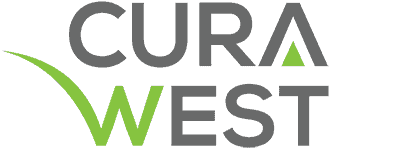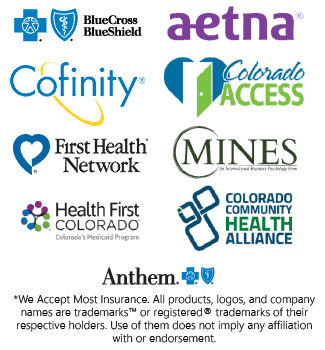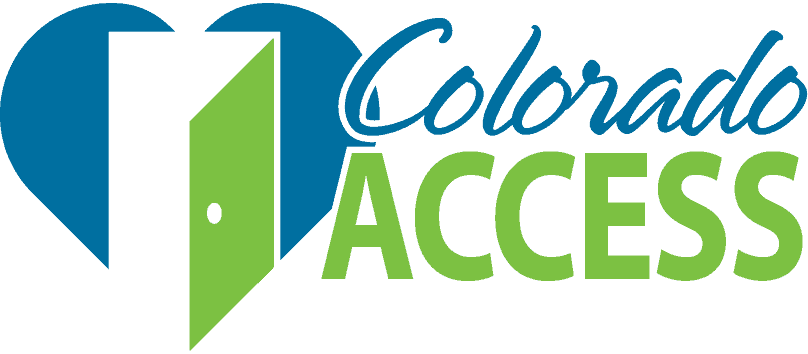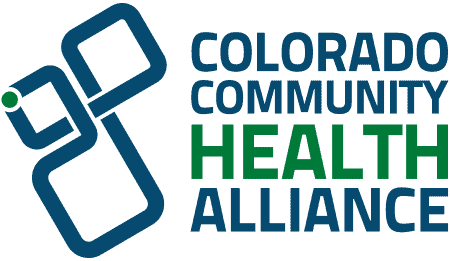12 Step Program Page
12 Step programs provide a set of guiding principles designed to help those who struggle with addiction. Initially developed in the 1930s, Alcoholics Anonymous was the first widely utilized mutual aid fellowship. It was designed for people suffering from alcoholism and looking for a way out, and is based — in large part — on the concepts of acceptance, spiritual development, and total abstinence. Since its inception, the program has been adapted by numerous other groups, and has evolved into a global, recovery-based community. At CuraWest we believe in a multi-pronged approach to addiction recovery, one that takes the mind, body, and spirit into account. Our approach to medical detox and residential inpatient treatment includes intensive behavioral therapy, proven holistic approaches, and a thorough education on the importance of ongoing peer support.
While we encourage our clients to participate in 12 Step meetings both during and after treatment, we know that Alcoholics Anonymous does not resonate with everyone. If you have an aversion to the 12 Step method of addiction recovery we are happy to help you explore alternative options. At CuraWest, we understand the recovery methods that work best for one client might not benefit another in the same way. Because every experience with active addiction is unique, every program of recovery should be highly individualized; flexible and in alignment with the preferences of the person it was designed for. To learn more about the ways in which we incorporate the 12 Steps into our medical detox and inpatient treatment programs, contact us today.
What is a 12 Step Program?
12 Step programs like Alcoholics Anonymous provide no cost, community-based resources to individuals who have been suffering from alcoholism and drug addiction. Recommended program involvement consists of regular meeting attendance, spending time with other program members, working through the 12 Steps with a sponsor, and eventually taking other members through the Steps. There are no hard and fast rules when it comes to AA, though it is recommended that members find a sponsor as quickly as possible, work through the Steps in a timely manner, and do everything in their power to maintain total abstinence from all mood and mind altering substances.
Alcoholics Anonymous is said to provide individuals with a “design for living that really works.” While staying sober is the main priority of AA members, they also focus on building self-esteem, maintaining motivation in sobriety, developing a spiritual connection, fostering friendships, and living principled lives. Principles taught in AA include acceptance, humility, honesty, willingness, and patience (among others). While relapse is an unfortunate part of the equation for many AA members, a recent study published by Stanford Medicine revealed that Alcoholics Anonymous helps more people achieve sobriety than traditional therapy. 35 studies (involving the extensive research of 145 scientists) also showed that healthcare costs were lowered significantly by program participation.
At CuraWest we believe in the effectiveness of 12 Step program involvement. Not only is there ample evidence supporting its efficacy, but many of our staff members have maintained long-term sobriety by staying engaged in their own personal programs of recovery. We thoroughly educate our clients on the 12 Steps of Alcoholics Anonymous and facilitate meetings during the detox and residential portions of our program. We encourage clients to socialize with other sober individuals, ultimately gaining a new perspective and learning what it takes to stay sober when treatment comes to an end.
Alcoholics Anonymous & Addiction Recovery
The 12 Step philosophy has proven to be an effective part of many addiction recovery programs. This particular philosophy highlights the Disease Model, suggesting alcoholism and drug addiction are chronic medical conditions that can be effectively treated and kept in remission, but never entirely cured. The 12 Step philosophy helps group members move away from self-centeredness, self-pity and fear as they move towards enhanced spiritual growth and commit to ongoing self-development. The tools taught in AA (working through resentments, taking a nightly inventory, etc.) can be beneficial for everyone — regardless of personal experience with addiction.
An article published by the National Institute of Drug Addiction on the efficacy of 12 Step programs states, “Self-help groups based on this philosophy outline 12 consecutive activities, or steps, that substance [users] should achieve during the recovery process. These steps specify that substance [users] must admit their powerlessness over alcohol and drugs, take a moral inventory of themselves, admit the nature of their wrongs, make a list of individuals whom they have harmed, and make amends to those people. Involvement in such groups is meant to provide participants with support for remaining substance free, a social network (the ‘fellowship’) with which to affiliate, and a set of 12 guiding principles (the ‘steps’) to be followed in the recovery process. The general guidelines for recovery based on this philosophy have been distilled down to what has been described as the 12-Step ‘six pack’: don’t drink or use drugs, go to meetings, ask for help, get a sponsor, join a group, and get active.”
There is ample clinical evidence supporting the effectiveness of 12 Step programs like Alcoholics Anonymous and Narcotics Anonymous. It has been repeatedly proven that when simultaneously engaged in ongoing behavioral therapy, those in programs like AA and NA have higher success rates in long-term sobriety.
We Are Here For You
Let Us Help You Heal
Our Drug & Alcohol detoxification experience is second to none.
Learn how we can help by speaking with one of our Treatment Advisors today.
Benefits of 12 Step Program Involvement
There are numerous benefits to 12 Step program involvement, including:
- A built-in community of like-minded individuals with whom to relate and process experiences with sobriety.
- A built-in level of accountability.
- Positive reinforcement when periods of sobriety are successfully maintained.
- The development of relapse prevention tools and techniques.
- Diminished feelings of isolation and loneliness.
- A free, community-based program which can be easily accessed from anywhere in the world.
- A safe space to openly discuss topics pertaining to alcoholism and drug addiction.
- The development of healthy coping strategies.
In many cases, the benefits of AA eventually outweigh any aversion a client might be experiencing. The social component of AA can be extremely beneficial during early sobriety, when clients are making sober friends for what might be the very first time. Having a network of other sober individuals makes the transition from treatment back into independent living much easier, and has been proven to improve overall treatment outcomes. The level of accountability provided by AA often means the difference between continued sobriety and relapse.
Aversion to AA
People might be hesitant to engage in 12 Step recovery programs for a variety of reasons. Reasons may include:
- Aversion to the concept of a “Higher Power.”
- The misguided notion that AA is a “cult.”
- Hesitance surrounding the language used in the program and program materials.
- Previous experiences with AA and other 12 Step support groups.
- Weariness of religious affiliation (AA is based on spiritual development and requires no religious attachment).
- Familial experiences surrounding AA and other 12 Step programs (for example, “My alcoholic father tried AA and it never worked for him.”)
- Pre-existing conceptions of the program based on media depiction.
- Aversion to black-and-white ways of thinking.
Many of our clients come to us with limited experience with the 12 Steps, though many have strong opinions about the program and others like it. These opinions might be rooted in stories they have heard, experiences others have had, and things they have either read about or seen in television and movies. We encourage our clients to avoid contempt prior to investigation. We debunk common myths surrounding AA while educating clients on the importance of peer support throughout the addiction recovery process. Exploration is a fundamental tenet of our program; even if a client comes to us hesitant to dive headfirst into AA, we encourage them to at least “give it a shot.” However, we never force a client into doing anything they are deeply uncomfortable with. For this reason, we offer several alternative and effective solutions.
Our Drug & Alcohol Detox Services Include
Alternative Options for Peer Support
Alcoholics Anonymous is not the only option when it comes to ongoing peer support. We understand that AA is not going to resonate with everyone, and we believe in the importance of exposing our clients to alternative options while they are in the residential portion of our treatment program. While AA is not always a necessity, peer support is essential to the maintenance of sobriety.
SMART Recovery
SMART Recovery is a non-profit organization designed to help those seeking abstinence from addiction (concerning both substances and behaviors). SMART stands for Self-Management and Recovery Training, and offers mutual support groups which can be accessed anywhere across the country. The official website reads, “Far too many people feel powerless over their lives and carry a sense of futility, a dread of staying trapped within an addiction pattern and locked into their circumstances. SMART helps them learn the skills they need to overcome their addictions and transform their lives. SMART was created for people seeking a self-empowering way to overcome addictive problems. What has emerged is an accessible method of recovery, one grounded in science and proven by more than a quarter-century of experience teaching practical tools that encourage lasting change.”
At CuraWest we introduce our clients to this method of recovery and encourage them to explore any alternative options that appeal to them.
Recovery Dharma
Recovery Dharma provides another alternative to AA and NA. This program centers around Buddhist philosophies. They have their own literature which focuses on the importance of meditation and spiritual development through tools like gratitude and generosity. According to the official website, “We believe that the traditional Buddhist teachings (“Dharma”) offer a powerful approach to healing from addiction and living a life of true freedom. By following a balanced path of understanding, ethical behavior, and mindfulness, all beings have the potential to find happiness and free themselves from the suffering of repetitive craving. Recovery Dharma is centered on the idea that meditation, the Four Noble Truths, and the support of our sangha can foster our journey toward an end to the suffering of addiction.”
Ready To Begin Your Drug & Alcohol Detox?
We Offer A Safe & Effective Program
Don’t let Drug & Alcohol addiction control your life.
Call us today and let’s get you started on the path to a better you.
The Freedom to Explore
At CuraWest we do more than offer individualized treatment planning — we honor the individual on a daily basis. Each of our clients comes to us with different experiences, insights, goals, and ambitions. Some are eager to explore every offering included in the daily schedule and others are hesitant to try certain things. At CuraWest we encourage exploration. Recovery is a process of self-discovery and newness. As clients begin to learn who it is they are and what it is they like and dislike, they begin to build entirely new lives for themselves. No longer enslaved to their addictions, they finally have the opportunity to test the waters and make informed decisions for themselves. Early recovery is an extremely exciting time. We encourage our clients to get to know themselves on a deeper level, whatever that might look like.
12 Step Involvement in Medical Detox
During the medical detox portion of our program, which typically lasts for between 3 and 10 days depending on the severity of withdrawal symptoms, clients are first introduced to the 12 Step model of addiction recovery. If they are feeling up to doing so, they have the opportunity to participate in 12 Step meetings that are brought into the detox center by sober individuals. They are encouraged to ask any questions they may have regarding the role of AA in continued sobriety.
12 Step Involvement in Inpatient Treatment
During the residential inpatient portion of our program, which typically lasts for between 3 and 21 days, 12 Step program education continues. Clients have the option of participating in on-site and off-site meetings. Meetings will be brought into the residence occasionally, facilitated by 12 Step representatives from established groups. Support staff members will also transport clients from the residence to 12 Step meetings throughout the Denver area. Additionally, several educational group workshops will cover the 12 Steps and what it means to work through the Steps with a sponsor. The benefits of AA will be explained in more thorough detail, and alternative options will be more thoroughly discussed.
Begin Healing Now!
Have A Call With One Of Our Treatment Advisors
Don’t Suffer Any Longer
If you or someone you love has been attempting to overcome drug or alcohol addiction with little to no success, professional treatment is likely necessary — and CuraWest is available to help. As soon as you contact us you will be put in contact with an experienced Treatment Advisor who will walk you through each step of our simple, straightforward admissions process. We begin by conducting a brief assessment over the phone. This will help our clinical and medical team determine which level of care is the most appropriate for each unique case. Next, we offer a free, no obligation health insurance benefit check to those who are currently insured. If you or your loved one is uninsured, we offer additional coverage options including self-pay and private pay. Finally, we help organize local ground transportation to our Denver, Colorado detox and recovery center. Contact us today for more information on how to get sober, or to begin your own personal journey of addiction recovery.


















